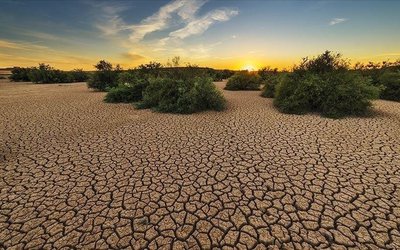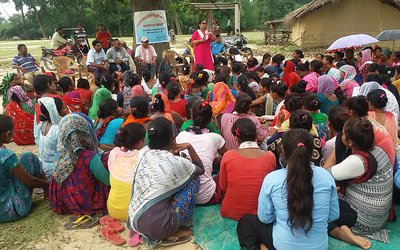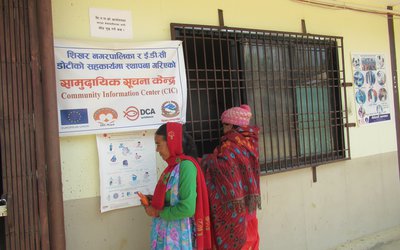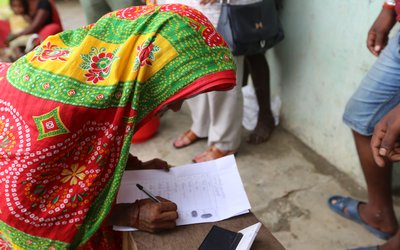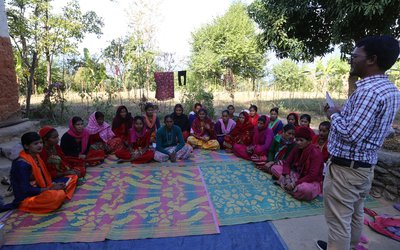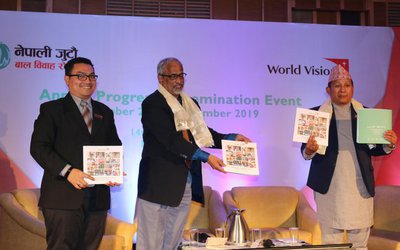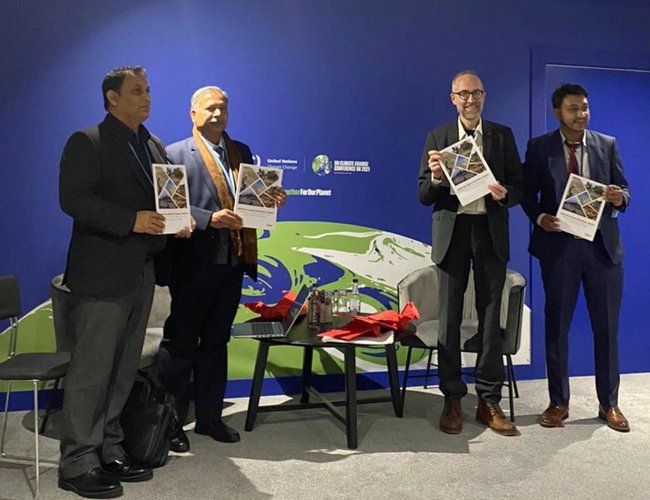
While there continue to be disagreements about how to address climate induced loss and damage in the negotiations at the UN Climate summit, COP26, people in many developing countries struggle daily with climate related disasters.
A new report ‘When the climate becomes a threat: Evidence of Climate Change induced Loss and Damage in Nepal’ by Dan Church Aid was launched on 8 November at the COP 26. The report was launched in the presence of Minister Ramsahay Prasad Yadav, Ministry of Forests and Environment. The report assesses the situation in three municipalities in Nepal.
All three areas have experienced either flooding or landslides, two natural hazards which are linked to climate change. Nepal is vulnerable, and affected both by melting glaciers, and increased temperatures and rain. In such a mountainous country this has dramatic effects.
The report shows how people were forced to leave their houses, and how the water and the landslides destroyed their property and fields and killed their cattle. None of the three municipalities received international support, but local authorities and civil society organizations provided some immediate support. However, this support was far from enough and 82% of the households had to take out loans to recover and reestablish their homes. 9% chose to permanently leave their homes and can thus be called climate-induced displaced people.
Marco Aviotti, Country Director, Dan Church Aid Nepal suggested, “Loss and damage could possibly have been prevented if sufficient adaptation measures had been taken in advance. However, for these three communities, as for many other communities in poor and vulnerable countries, adaptation is lacking. The conclusions of the paper are therefore clear: more international support is needed, both for adaptation, and for addressing the loss and damage people face.
Birgitte Qvist-Sørensen, Secretary-General at Dan Church Aid, said, “The situation is tragic. These people have not been contributing much to global warming, but at the same time climate change has a huge impact on their lives and livelihoods. This is not fair! Climate induced loss and damage must be addressed globally, and big polluters must mobilize the support needed.”
The climate action advisor at the Dan Church Aid office in Nepal, Rajan Thapa, shared, “The assessment shows that people have been forced from their homes, and that some people choose never to return. This is sad, but also understandable, as climate change continues to pose a threat to these communities. Without adaptation to reduce the risk for flooding and landslides, it is likely that these municipalities will continue to face similar disasters, leading to more climate induced loss and damage.”
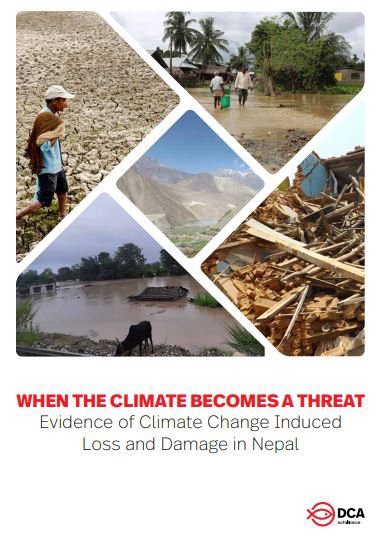
“It is not fair that these poor families should have to take loans to recover,” Thapa continued “This will put a debt burden on their shoulders, as they will have to repay the loan with interest. There is a real need for loss and damage finance, from developed countries, to support people who face climate change on the ground.”
The report highlights a variety of findings based on the research in the three municipalities namely Aathbis of Dailkeh District, Panchadewal Binayak of Achham District and Barbardiya of Bardiya District.
Highlights include:
Both economic and non-economic loss and damage is very evident in Nepal and is a common concern, as well as an issue of climate justice.
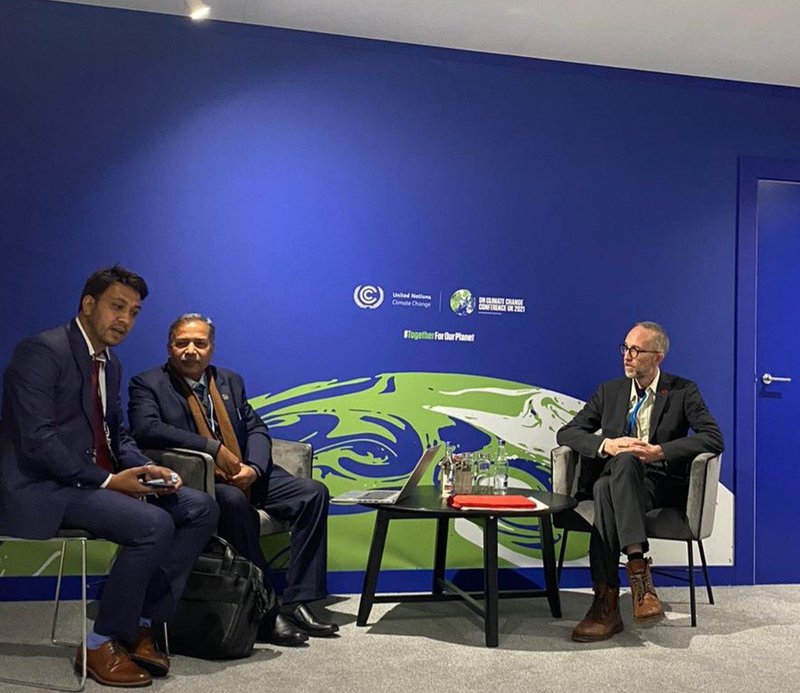
Although the study covered a limited number of households, the total economic loss for those interviewed in the three municipalities was very high at around USD 388,355, with an average loss per household of approximately USD 4,176.
Displacement is a huge problem. The majority of people return, but 9% have permanently relocated.
A majority of the affected people, 82%, were forced to take loans, to resettle after the disasters.
- FOREIGN EXCHANGE: Largest Deposit
- Jul 22, 2024
- IMF: Approval Of SDR
- Jul 22, 2024
- NEPAL-KOREA RELATIONS: Fifty-Years Of Warm Relations
- May 31, 2024
- NEPAL-BRITAIN: Centenary Celebration
- May 31, 2024
- POLITCS: Forming New Alliances
- May 27, 2024

